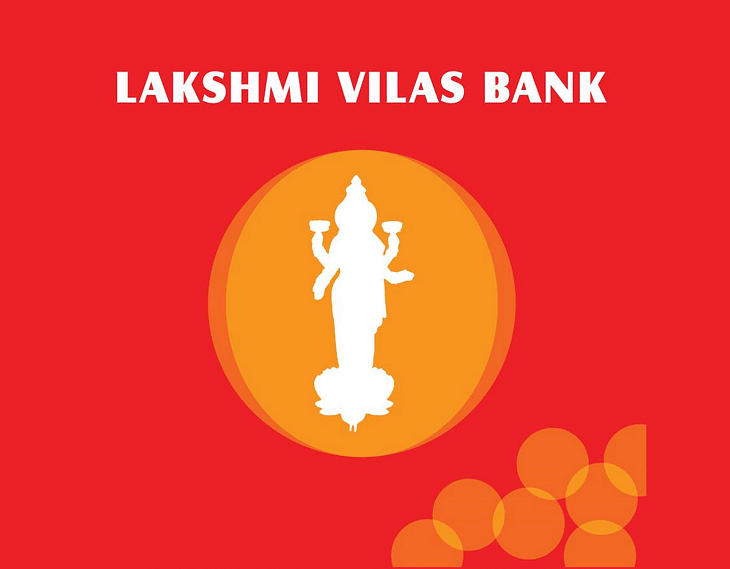Mayhem at Lakshmi Vilas Bank

Lakshmi Vilas Bank (LVB) has been in headlines lately. The shareholders in the Annual General Meeting ousted 7 of their senior management including CEO and MD S. Sundar. The shareholder even voted against the re-appointment of its statutory auditors. Yes, even the auditors! Previously, Lakshmi Vilas Bank had been facing a series of resignations from top officials, failed investment prospectives, rising Bad Debt, and poor financial performance. Is Lakshmi Vilas Bank headed for real trouble now? Or can Lakshmi Vilas Bank get out of this mess, like Yes Bank?
Poor Financials
- LVB has been posting a loss for the last 10 quarters. Subsequently, the loss for the quarter ending June stood at a whopping Rs 112.3 crores.
- The company's Gross Non-Performing Assets (NPA) has risen from 10.7% in June 2018 to a very high of 25.4% in June 2019. Gross NPA is the sum of all loans given out by the bank, which have not been paid back duly or, in simple terms, sum of all loans that have gone bad. Having a 25.4% Gross NPA means that 25.4% of all the loans the bank has given have gone bad.
- The Reserve Bank of India (RBI) had placed the bank on PCA(Prompt Corrective Action) framework in September 2019, citing rising debts and inadequate capital. Under PCA, a bank's lending is restricted, the bank is required to arrange a certain capital and meet certain conditions placed by the RBI.
- The Capital Adequacy Ratio(CAR) of the bank as of June 2020 stands at 0.17% as opposed to the minimum 9% limit set by the RBI. CAR is the amount of capital a bank retains as compared to its risks. It tells us whether to not the company will be able to absorb losses in wake of an uncertain event. Essentially it tells us about the financial health of the company, and in the case of Lakshmi Vilas Bank, it is not looking good.
Too Many Resignations? Internal Conflict? Poor Management?
- There is a noticeable pattern in voting out of the senior officials in the AGM. In the ousting of the senior officials, 80% of the promoter group was IN FAVOR of retaining them, while only 20% were AGAINST retaining them. It was because of the vote of the retail and institutional shareholders that they were ousted from the bank. This could be because of internal politics in the board of the bank.
- The company's then-CEO and MD Parthasarathi Mukherjee resigned in August 2019. In September 2019, the company was placed under Prompt Corrective Action by the RBI. This was around the time LVB and Indiabulls Housing Finance Limited were planning a merger which was struck down by the RBI in October 2019.
- The Then-CFO S.Sundar along with three senior officials had resigned due to 'administrative reasons'. The next day, he was appointed as interim CEO and MD. In September 2017, he was ousted along with 6 other officials in the Annual General Meeting.
- Vice President and Chief Risk Officer D Krishnakumar resigned in April 2020. The reason for his resignation was not stated.
- In 2019, Religare Finvest, a financial services company accused LVB and two of its promoters of siphoning off funds up to Rs 793 crores. Economic Offences Wing of the Delhi Police arrested two of its ex-employees in connection with the case. LVB denied all claims and stated that RFL made the accusation to cover-up their own instance of fraud.
Recent Developments
The point is, LVB is having a capital crunch. The shareholders voted in favor of raising the foreign shareholding limit to 74 percent and also voted in favor of a rights issue to meet capital needs. The RBI has also set up a 3-Member Committee to look after the functioning of the bank temporarily.
LVB is in talks with Clix Capital, a Non-Banking Financial Company (NBFC), for a merger. Both have signed informal agreements for the merger and also completed the due diligence for the same. The merger may bring up capital of up to Rs 1,900 crores and assets worth Rs 4,600 crores from Clix Capital. There is still an uncertainty after the board room scuffle during the AGM. RBI wants this deal to go ahead as soon as possible. If the deal doesn't click, the RBI may push for a merger with a larger bank.
Clix Capital has given a non-binding offer letter to LVB, offering to take close to 90% stake in LVB. Clix Capital has also sought an exemption from the mandatory three-year lock in period for sale of shares. This gives a hint about the deal going through.
There is definitely some internal problems within the senior management. However, the depositor's money is safe, but only to a point. The liquidity coverage ratio of the bank is 262% against the RBI norm of 100%, this means it can easily meet its short term obligations easily. Investors and Bank Account holders need to watch out how LVB raises capital, gets a new, faster, and more efficient CEO, and steps taken by the bank to reduce NPAs and allot capital efficiently.


Post your comment
No comments to display